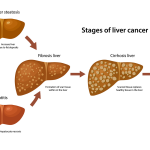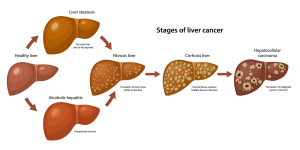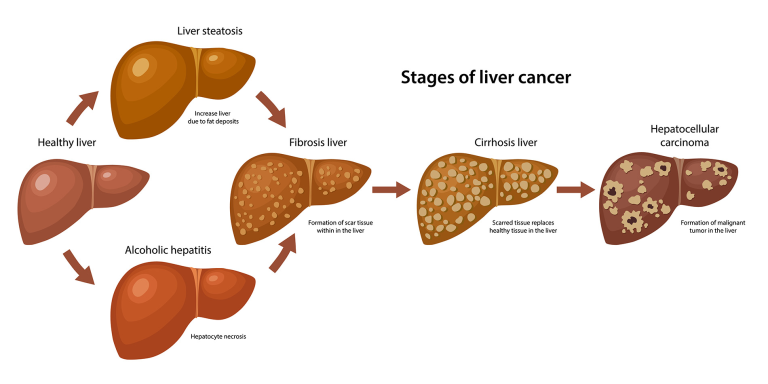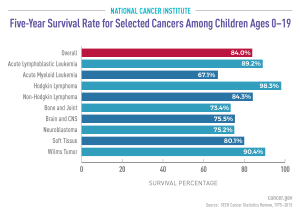The Global Flourishing Study represents a groundbreaking exploration into youth well-being and the broader dimensions of human flourishing. Led by Tyler VanderWeele and a coalition of researchers from esteemed institutions, this ambitious study spans multiple countries, cultures, and economic contexts, incorporating the voices of around 203,000 participants. Findings reveal a striking trend: while financial prosperity is often associated with well-being, it does not guarantee happiness or fulfillment, particularly among younger generations. This important research sheds light on various factors such as mental health, social connections, and the critical need for investment in youth as a pathway to effective economic development. Ultimately, the Global Flourishing Study urges a reevaluation of societal priorities towards fostering a more holistic approach to well-being for all.
The Global Flourishing Study sheds light on the intricate relationships between economic prosperity and individual well-being, particularly among the youth. This major investigation, led by a team of researchers, highlights the importance of mental health, social ties, and a profound sense of purpose within communities. By prioritizing human flourishing, the study aligns with emerging conversations about youth vitality and societal progress. Key findings from this research challenge conventional economic models and emphasize the need for a more comprehensive framework that includes emotional and relational health. In essence, the study advocates for a balanced approach to economic development that nurtures human connections and personal growth.
Understanding Youth Well-Being Through Economic Development
In the pursuit of economic development, it’s vital to consider a multifaceted approach to youth well-being. While financial prosperity is necessary for improving living conditions, the overarching findings from recent studies highlight that a focus solely on wealth may neglect the essential components of flourishing in young people. Economic development must encompass elements such as social connections, mental health support, and opportunities for meaningful engagement. For instance, programs that foster community partnerships and peer support systems can significantly enhance the well-being of youth, leading to more robust social networks and healthier mental states.
Moreover, findings from the Global Flourishing Study reveal a troubling correlation between economic status and youth well-being. Countries that rank lower in income but demonstrate high levels of social cohesion and supportive environments often yield better well-being outcomes for youth than wealthier nations. This stark disparity illustrates the importance of examining how economic policies are structured and the potential risks they pose to youth mental health. By investing in comprehensive youth programs that prioritize social connections and character development, we can create a foundation for sustained flourishing that transcends mere financial success.
Exploring the Role of Mental Health in Human Flourishing
Mental health is a crucial component in the broader context of human flourishing, especially for the youth demographic. The Global Flourishing Study underscores the significance of psychological well-being and its interaction with various life factors, suggesting that mental health protection is not merely a supplementary aspect of flourishing but its core foundation. Young individuals facing mental health challenges are often hindered in their ability to create meaningful relationships, pursue academic success, and participate fully in their communities—effects that can have long-lasting consequences on their flourishing.
Furthermore, addressing mental health in conjunction with promoting economic development offers a holistic path toward enhancing overall well-being. Initiatives aimed at improving youth mental health can lead to significant social and economic returns. By fostering environments that support emotional and psychological resilience, communities can empower their young members to navigate life’s challenges more effectively. This aligns with the study’s findings showing that nations with proactive mental health strategies tend to rank higher in youth flourishing, thereby reinforcing the idea that investment in mental health is paramount for sustainable development.
The Impact of Social Connections on Youth Flourishing
Social connections play an instrumental role in youth well-being, as revealed by the Global Flourishing Study. Interpersonal relationships can significantly influence a young person’s sense of belonging and happiness. The findings demonstrate a contrast between wealthier nations, where many youth report feelings of isolation, and lower-income nations that foster strong community ties and support networks. This dissonance prompts a critical examination of how social structures and cultural norms impact youth flourishing.
Efforts to enhance social connectedness among youth should become a central focus of policy-making and community development. Programs that facilitate social bonding—be it through sports, community service, or support groups—can fortify resilience and character in young individuals. Furthermore, promoting initiatives that encourage interpersonal relationships will not only bolster youth mental health but also instill virtues necessary for societal cohesion. Therefore, addressing the social dimension of youth well-being is essential for cultivating environments where individuals can thrive.
Cultural Perspectives on Youth Well-Being
The Global Flourishing Study sheds light on the varied cultural contexts that shape perceptions of youth well-being. Across different nations, cultural values influence the definition and characteristics of flourishing, revealing that well-being is not a universally understood concept but one that is shaped by societal norms and values. In some cultures, community and collective success prioritize individual achievement, which in turn affects the mental health outcomes of youth. Understanding these differences is critical for developing effective youth support models.
Moreover, incorporating diverse cultural perspectives into youth programs can encourage a more inclusive understanding of well-being. By recognizing and valuing cultural differences, policymakers can tailor interventions that resonate at a community level. This approach not only enhances the effectiveness of youth initiatives but also strengthens social connections within culturally diverse populations, fostering a collective investment in youth well-being that transcends economic indicators.
The Importance of Relationships in Economic Development
The findings from the Global Flourishing Study illustrate a fascinating relationship between economic development and the quality of interpersonal relationships. As countries strive to improve their economic standing, it is crucial to ensure that the development does not come at the cost of personal connections and community bonds. Research indicates that nations with robust economic growth can sometimes overlook the importance of fostering close relationships among their citizens, which can negatively affect overall well-being and mental health.
Focusing on relationships as a core component of economic development can lead to more sustainable progress. Policies that promote community engagement, social responsibility, and supportive networks can create an environment where individuals not only improve their financial situations but also engage in meaningful interactions. By prioritizing relational dynamics in economic development strategies, societies can cultivate a sense of belonging, ultimately leading to higher levels of happiness and fulfillment among youth.
Resilience as a Key to Flourishing in Youth
In examining the dimensions that contribute to youth well-being, resilience emerges as a vital factor. The Global Flourishing Study highlights how resilience enables young individuals to adapt, recover, and thrive despite challenges. Cultivating resilience through supportive adult relationships, education, and community resources can significantly enhance youth’s ability to flourish. Communities that invest in building resilient youth are setting the stage for long-term benefits, fostering future generations capable of navigating life’s obstacles effectively.
Educational programs that incorporate life skills, emotional intelligence, and coping strategies are crucial in developing resilience. By creating a more resilient youth population, communities can decrease the risk of mental health issues and enhance social connections, both of which are essential for flourishing. As such, the emphasis on resilience not only supports individual youth but also contributes to the larger societal goal of fostering an environment where all young individuals can flourish.
Financial Security and Its Relation to Youth Well-Being
Financial security is often perceived as a cornerstone of well-being, yet the Global Flourishing Study emphasizes that it is just one of several factors contributing to youth flourishing. While stable financial conditions provide a sense of safety and opportunity, they do not guarantee emotional or social well-being. Investing in programs that enhance youth’s financial literacy and employment opportunities can be instrumental, but it should be complemented by efforts to foster mental health and community connections.
Additionally, analyzing the interplay between financial security and other variables such as social connections and mental health reveals a comprehensive picture of youth well-being. As many nations work towards improving economic conditions, it is essential to ensure that these efforts do not overlook the need for social and psychological support systems. Therefore, a multifaceted approach to youth well-being integrating financial stability with mental health and relationships will result in a community where young people can thrive.
Spiritual Pathways and Their Contribution to Flourishing
The Global Flourishing Study acknowledges the role of spirituality in enhancing well-being, particularly among youth. Engagement in spiritual practices and communities can provide a critical source of support that fosters resilience, purpose, and social connections. This finding aligns with the idea that spiritual well-being is interlinked with psychological and relational health, which ultimately contributes to a flourishing life. By encouraging spiritual exploration among youth, communities can bolster their emotional health and provide a sense of belonging.
Moreover, integrating spiritual development into youth programs can complement traditional growth areas like education and career planning. When young individuals explore their beliefs and values, they develop a stronger sense of identity and purpose—crucial elements that enhance overall well-being. Thus, fostering spiritual pathways can significantly enrich youth initiatives and provide a holistic approach to flourishing that transcends material success.
Longitudinal Insights on Youth Flourishing
The Global Flourishing Study represents a significant advancement in understanding youth well-being through longitudinal data analysis. By continually tracking respondents over time, researchers can observe shifts and trends in youth flourishing as they navigate various life stages. This type of research is essential for informing interventions and policies aimed at enhancing well-being, as it allows for rich insights into the evolving challenges and supports that youth encounter across different cultural and economic contexts.
Tracking changes in youth well-being through longitudinal studies enables the identification of critical periods where interventions may be most impactful. For instance, recognizing when young individuals are most vulnerable or when they could benefit from additional support can inform targeted program development. The potential for ongoing data collection and analysis promises to yield further revelations about the complexities of youth flourishing, ultimately guiding communities toward more effective approaches to support their younger generations.
Frequently Asked Questions
What is the Global Flourishing Study and how does it relate to youth well-being?
The Global Flourishing Study is a major investigation into individual well-being that encompasses the experiences of approximately 203,000 people from various cultures and economic backgrounds. It focuses on dimensions of youth well-being such as mental health, social connections, and overall human flourishing, highlighting significant disparities in the flourishing of youth across different nations.
How does economic development impact human flourishing according to the Global Flourishing Study?
The Global Flourishing Study indicates that economic development does not automatically correlate with human flourishing. For instance, despite its wealth, Japan ranked lowest in measures of social connections. In contrast, countries like Indonesia, often viewed as less economically advanced, topped the rankings in areas of social connections and community engagement, suggesting a complex interplay between economic status and overall well-being.
What are the key findings about youth mental health from the Global Flourishing Study?
The Global Flourishing Study reveals troubling trends in youth mental health, showing that levels of flourishing among young people in Western countries, particularly the U.S., have significantly declined. As youth navigate pressures of modern life, their well-being appears to plateau in their late teens and early twenties, suggesting a crucial need for enhanced support and investment in youth well-being.
How do social connections affect youth well-being in the Global Flourishing Study?
The Global Flourishing Study highlights that strong social connections are a critical component of youth well-being. The findings suggest that flourishing individuals often report having intimate friendships and supportive family relationships, which are essential for mental health and overall happiness.
What role does spirituality play in the Global Flourishing Study’s findings on flourishing?
Spirituality is shown to significantly impact human flourishing in the Global Flourishing Study, with increased attendance at religious services being consistently associated with higher levels of adult flourishing. This suggests that spiritual pathways may enhance overall well-being and meaning in life, influencing both youth and adult populations.
Why is the Global Flourishing Study significant for understanding youth well-being globally?
The Global Flourishing Study is significant because it expands the investigation of youth well-being beyond Western populations, capturing a more global perspective. The large and diverse sample allows for comparisons across nations and highlights how various cultural and economic factors influence human flourishing, making it a vital resource for policy makers and researchers.
How can the findings of the Global Flourishing Study inform economic development practices?
The findings of the Global Flourishing Study suggest that economic development efforts should consider the non-financial aspects of well-being, such as social connections, mental health, and spiritual fulfillment, to promote a more holistic approach to development. This may involve integrating community-building initiatives alongside traditional economic growth strategies to foster true human flourishing.
What implications does the Global Flourishing Study have for future research on youth well-being?
The Global Flourishing Study opens significant avenues for future research on youth well-being by emphasizing the need for longitudinal studies. Continuous analysis of its dataset will help understand the evolving patterns of youth flourishing and the effectiveness of interventions aimed at enhancing mental health and social connections across different cultural contexts.
| Key Points |
|---|
| A major global study on flourishing highlights the importance of well-being among youth, emphasizing the idea that wealth does not equate to well-being. This study ranks countries based not solely on economic factors. |
| The Global Flourishing Study enrolled approximately 203,000 participants across various cultures and environments, allowing for a comprehensive analysis of individual well-being. |
| Youth well-being in the U.S. shows concerning trends, with younger individuals reporting lower flourishing levels compared to older adults, indicating a shift in the traditional U-shaped life satisfaction curve to a J-shaped curve. |
| Countries like Indonesia and Mexico ranked higher in flourishing despite being less wealthy than the U.S., showcasing that economic status does not guarantee higher levels of flourishing. |
| Key factors positively influencing flourishing include strong familial relationships and regular participation in religious activities, which are linked across cultures. |
| The results suggest that questions about societal investment in youth and the potential negative impacts of economic development on relationships and meaning need to be addressed. |
Summary
The global flourishing study underscores the critical intersection between economic status and individual well-being, particularly among youth. It reveals that financial wealth alone does not equate to higher levels of life satisfaction or flourishing. As wealthier nations grapple with lower well-being scores among their younger populations, the findings challenge existing notions of development and call for a re-evaluation of how we invest in the future. Ensuring the flourishing of all individuals requires a holistic approach that values relationships, personal meaning, and spiritual well-being alongside economic growth.
















